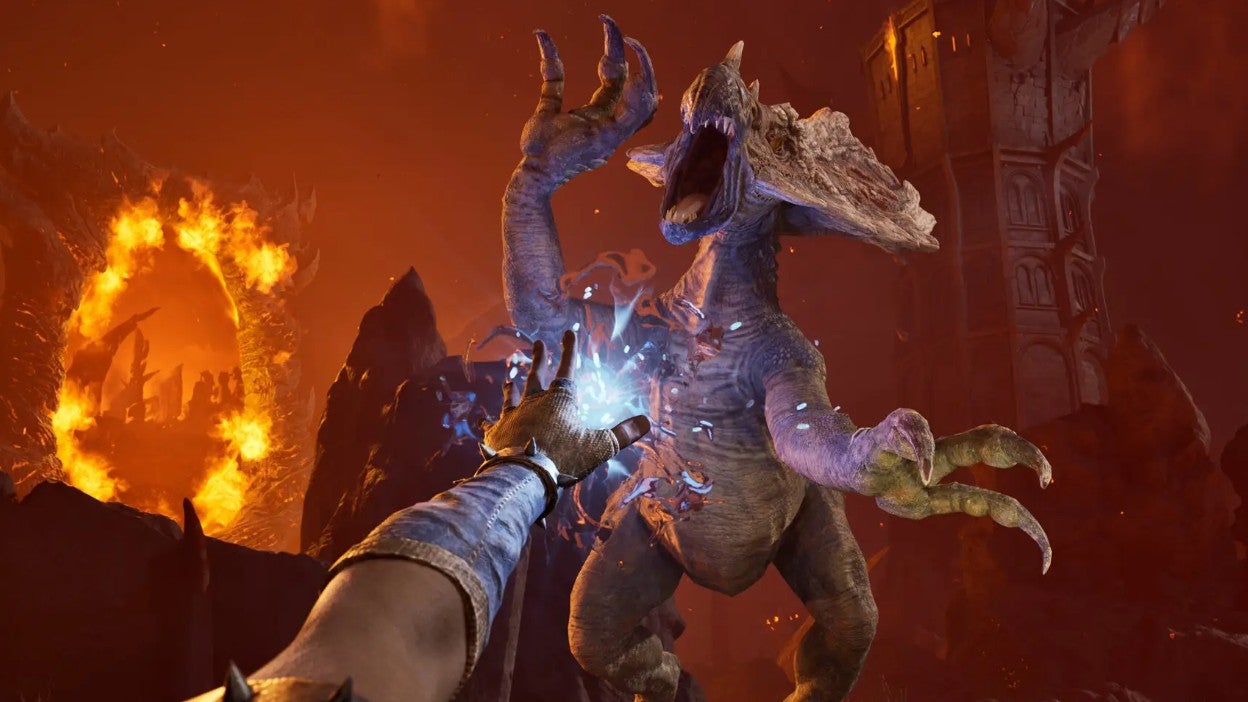Digital Foundry Direct, our regular show covering the week’s tech and gaming news, this week looked at the new Oblivion Remastered patch 1.2. The update is a big one, and promises fixes to performance woes, crashes and other bugs that have afflicted the game since launch. Unfortunately, testing by Tom Morgan has revealed a fairly poor state of affairs on consoles – with some of the most glaring issues still unresolved.
Most critically for us, Bethesda’s patch notes promise performance optimisation for several game systems, fixes to frame-drops in four named locations, general frame-time improvements and less frequent hitches in the open world… so we loaded up the game on the new patch to compare a number of problematic areas and see how things had changed two-and-a-half months on.
Just as we saw when Alex looked at the PC patch two weeks ago, effectively all of the core issues we identified in our original coverage remain on consoles, including major performance drops, crashes and degraded performance over time. It’s worth going through each of these three issues in turn to explain exactly what’s going wrong – and why we don’t necessarily expect all problems to be easily fixed in future updates.
The core performance issue for most players rears its head in the 60fps performance mode, where you’d reasonably expect to get a solid 60fps update rate. However, traversal between the different “cells” in the original game world (the skeletal framework of the game, over which Unreal Engine 5 runs) still cause significant frame-rate hitches on the new patch, which can measure up to 240ms on PS4 Pro – nearly a quarter of a second. Actual frame-rates still run in the 40-60fps region, whether you’re on PS5, PS5 Pro or Xbox Series X.
- 0:00:00 Introduction
- 0:00:51 News 1: Sony introduces power saving mode for PS5
- 0:18:30 News 2: Cyberpunk Xbox VRR is “working” as intended
- 0:24:12 News 3: Oblivion Remastered 1.2 update has little effect on console performance
- 0:41:21 News 4: Pure Pool Pro delivers native 8K balls on PS5 Pro
- 0:48:07 News 5: Fallout: Bakersfield trailer shows off GZDoom visuals
- 0:57:54 News 6: Crytek releases 25 year anniversary video
- 1:14:27 Supporter Q1: Are there any meaningful differences with windowed, windowed borderless, and fullscreen modes in Windows?
- 1:20:36 Supporter Q2: Will GTA 6 have a 60fps mode only on PS5 Pro?
- 1:28:08 Supporter Q3: Why is Microsoft getting rid of video purchases on Xbox?
- 1:33:24 Supporter Q4: What will the Switch 2 die shrink look like?
- 1:36:19 Supporter Q5: Is Nintendo institutionally opposed to TAA/DLSS?
- 1:42:27 Supporter Q6: Does the convergence of console design and decline of exclusives spell the end of the console war?
- 1:51:36 Supporter Q7: Have you been getting any unsolicited dock pics?
Running direct comparisons from the prior version to 1.2 produces inconclusive results, too. Some runs appear better on 1.2, while others are inexplicably worse. The fortunes of Oblivion’s performance also vary substantially within a single run across the landscape – again suggesting unseen variables in the engine’s streaming logic that cannot be exactly matched from test to test. To help limit the variables here to an extent, we restarted the Oblivion app between every run (closing the game to the system menu and re-opening), but the frame-rate remains erratic even in that best-case.
